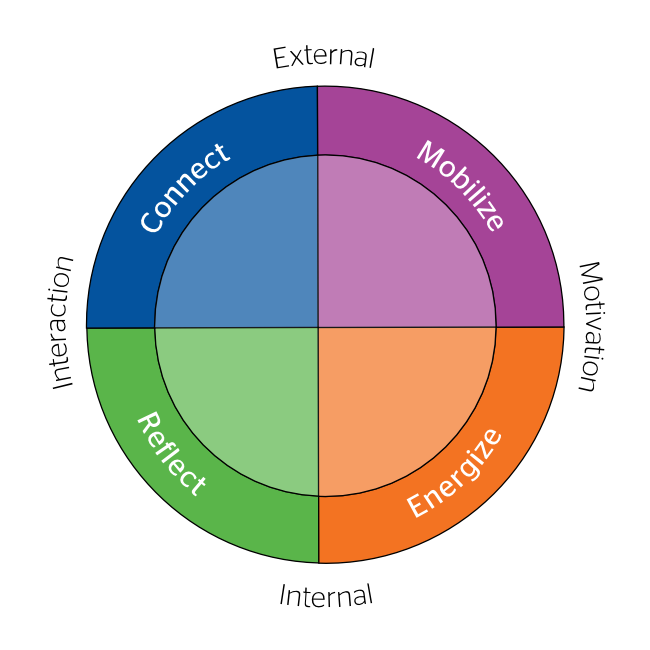As a leader of a team, you know that workplace conflict arises between team members from time to time. Even though we pride ourselves on our ability to manage and resolve them, whenever there are people in a group setting, there will be conflict at some point.
We try our best to avoid it by creating teams where everyone gets along, coaching our employees on different conflict resolution approaches, and ultimately, involving ourselves in their disputes if they can’t navigate them alone. We spend so much time and energy trying to find our way through conflict, but we don’t always understand why it is happening.
What may surprise you to learn is that often, what we view as workplace conflict, is actually an unrecognized or unidentified conflict between two talents. When you recognize this and learn how to use your employee’s individual strengths from a place of understanding, you’ll be able to assist your employees to resolve conflict before it negatively affects their work or results.
How Strengths Work Helps Identify and Resolve Workplace Conflict
Strengths work is about leaning into who we are naturally. It is about understanding the fundamental aspects of our personality that allow us to be successful, and enjoy certain tasks or activities. It’s about knowing what we are good at, and how that can be used to help ourselves and others.
It’s also important to know that all talents are valuable and have their place in the world, and in the workplace. While some talents may be more visible or come across as more exciting and fun, all the talents are necessary, unique, and can contribute positively in the workplace.
When we understand our strengths and talents, and those of our team members, we can use them to our advantage. As we appreciate and use talents most effectively, our employees will feel understood and appreciated which will lead to less workplace conflict. However, if we don’t understand and know how to harness talents the opportunity for conflict arises.
If you have ever had two people on your team who always seem to be at odds with each other, it may be helpful to look at their talents and see if they conflict.
Before doing this work, you may have assumed the continual conflict had something to do with personalities, but after having your team take a strengths assessment and learning about each individual’s talents, strengths and preferred ways of communicating you’ll have a much clearer picture of why these workplace conflicts keep coming up, and what to do to help resolve them.

Real-Life Example: Adaptability Versus Consistency
I worked with a team where two individuals were struggling to work together and after finding out their strengths it was easy to see why.
One individual had a talent called adaptability. Adaptability is all about being flexible. It is an internally energizing talent. This person thrives on chaos and new things. They don’t mind priorities changing or exceptions coming their way that they have to process. These kinds of things energize them. They enjoy feeling like they are fighting fires and they always want to be involved in trying new things. Someone with the talent of adaptability thrives in this type of environment and finds it exciting!
Another person on the team had a talent called consistency. Consistency is an internal talent as well, but it’s very much a thinking talent. It’s all about routine and process. Individuals with this talent don’t like exceptions. They thrive on processes and routines. They want to follow proven ways of doing things that are predictable and get results.
At times, these two individuals would get frustrated with one another. When you look at their talent profiles you can see why. The person with the talent of adaptability was constantly getting involved in new things, and they didn’t like to stick with the standard processes. This person was usually biting off more than they can chew, which would then lead them to take the path of least resistance to get everything done.
The employee with the talent of consistency was very proud of the processes she had built and how well they worked, with minimal exceptions. When she had to work with her adaptable co-worker, she felt disrespected when he refused to follow the processes she had created. The adaptable co-worker felt like the consistent employee was too stuck in her routines and was making things unnecessarily difficult.
Conflict naturally began to arise every time they worked together. They didn’t understand the way that the other person thought or the way they approached their work. There was a lack of trust between them each time they interacted.
When we sat down to talk to them, it was clear that the person with the talent of consistency felt that the person with the adaptability talent was too chaotic and didn’t respect the process. The adaptive person felt that the person who was consistent was too rigid and inflexible.
The truth is, they were both right to an extent. As we began having conversations about the value of each of their talents they began to understand one another a little more.
The person who valued consistency began to see that someone who is adaptable values working on new things and finds it energizing. The person who was adaptable could see the value that the consistent employee brought to the organization by creating processes that delivered results and sustained the work they were doing.
As a result of these conversations and coming to understand each other’s talents, these two people were able to build a bridge to work together much more effectively than before. They understood where the other was coming from.
Instead of being frustrated and allowing that workplace conflict to disrupt and slow down their work, the leader was pleased to see that these two individuals could work together better simply by understanding the value of talents.
Learn More!
If you relate to this story you would benefit from learning more about how to manage and resolve conflict through strengths work. I would love to talk to you about our process for helping guide your team through this work and show you the positive results you can expect. You can contact me here to book a free 15-minute call to learn more.
